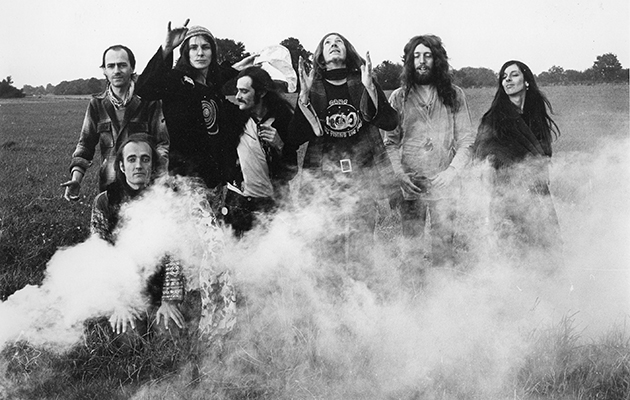Allen’s stage appearances started to become erratic. In December 1974 he went AWOL before a gig in Paris; the next year he felt physically unable to go on stage in Cheltenham. He soon left his own band. True to their soixante-huitard roots, Gong never really had a “leader”, and Allen, even as its founder and key writer, was happy to cede authority to others. The group continued without him, with Malherbe as the only original survivor on 1975’s Shamal, an album led by him and Mike Howlett. Both had left by 1976’s fusion outings Expresso and Gazeuse!, leaving a band dominated by the jazz-rock guitarist Allan Holdsworth and drummer Pierre Moerlen.
“Gong, like Soft Machine many years earlier, turned into a jazz rock band when Daevid left,” says Malherbe. “Interesting, but less humorous. The silliness we had with Daevid disappeared.”

For much of the next two decades, Gong’s alumni continued in various separate projects. Steve Hillage started a successful solo career, became a big-name producer and, after being championed by The Orb, started his own ambient dance-music collective, System 7. Didier Malherbe pursued a series of jazz and world music ventures; Moerlen continued the Gong franchise as a jazz-rock project well into the 1980s; and Gilli Smyth launched an occasional outfit called Mother Gong. Daevid Allen was embraced by some punks (he toured with The Fall, and visited CBGB’s in 1979) and pursued several side-projects (Planet Gong, Euterp, Invisible Opera Company of Tibet and the University Of Errors).
Gong eventually reformed in 1992 for the album Shapeshifter, and have toured with various lineups on several occasions since then. In Amsterdam in 2006, a three-day festival called the Gong Un-Convention featured every Gong-related project along with a full reunion of the classic lineup. This year they celebrate their 40th anniversary with an extensive world tour and a new album, 2032. Recorded in Australia (where Allen and Smyth now live, albeit separately) and London (where the band is effectively led by Steve Hillage), it sees them continue their obsessions – aliens, cheese, pixies – in a 21st-century setting.
“It sounds like silly stuff, but there is always a serious side to it,” says Allen. “Gong pokes fun at our own folly, at our attitude towards the alien. For me, absurdism is the highest form of comedy. I think that’s why people still love Gong.”



